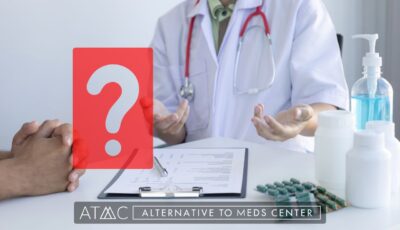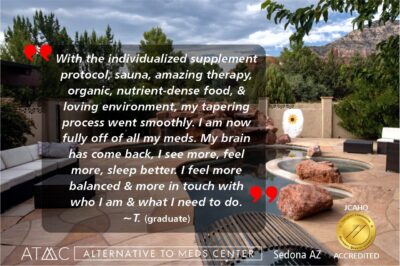1. Visser SN, Danielson ML, Bitsko RH, Holbrook JR, Kogan MD, Ghandour RM, Perou R, Blumberg SJ. Trends in the parent-report of health care provider-diagnosed and medicated attention-deficit/hyperactivity disorder: United States, 2003-2011. J Am Acad Child Adolesc Psychiatry. 2014 Jan;53(1):34-46.e2. doi: 10.1016/j.jaac.2013.09.001. Epub 2013 Nov 21. PMID: 24342384; PMCID: PMC4473855. [cited 2024 Mar 29]
2. Chou CC, Huang CJ. Effects of an 8-week yoga program on sustained attention and discrimination function in children with attention deficit hyperactivity disorder. PeerJ. 2017 Jan 12;5:e2883. doi: 10.7717/peerj.2883. PMID: 28097075; PMCID: PMC5237364. [cited 2024 Mar 29]
3. Williams OC, Prasad S, McCrary A, Jordan E, Sachdeva V, Deva S, Kumar H, Mehta J, Neupane P, Gupta A. Adult attention deficit hyperactivity disorder: a comprehensive review. Ann Med Surg (Lond). 2023 Apr 12;85(5):1802-1810. doi: 10.1097/MS9.0000000000000631. PMID: 37228994; PMCID: PMC10205222. [cited 2024 Mar 29]
4. Thapar A, Cooper M, Jefferies R, Stergiakouli E. What causes attention deficit hyperactivity disorder? Arch Dis Child. 2012 Mar;97(3):260-5. doi: 10.1136/archdischild-2011-300482. Epub 2011 Sep 7. PMID: 21903599; PMCID: PMC3927422. [cited 2024 Mar 29]
5. Lakhan, S. E., & Kirchgessner, A. (2012). Prescription stimulants in individuals with and without attention deficit hyperactivity disorder: misuse, cognitive impact, and adverse effects. Brain and behavior, [cited 2024 Mar 29]
6. Adamou M, Arif M, Asherson P, Aw TC, Bolea B, Coghill D, Guðjónsson G, Halmøy A, Hodgkins P, Müller U, Pitts M, Trakoli A, Williams N, Young S. Occupational issues of adults with ADHD. BMC Psychiatry. 2013 Feb 17;13:59. doi: 10.1186/1471-244X-13-59. PMID: 23414364; PMCID: PMC3599848. [cited 2024 Mar 29] [cited 2024 Mar 29]
7. Lauder K, McDowall A, Tenenbaum HR. A systematic review of interventions to support adults with ADHD at work-Implications from the paucity of context-specific research for theory and practice. Front Psychol. 2022 Aug 22;13:893469. doi: 10.3389/fpsyg.2022.893469. PMID: 36072032; PMCID: PMC9443814. [cited 2024 Mar 29]
8. Zhang D, Lee EKP, Mak ECW, Ho CY, Wong SYS. Mindfulness-based interventions: an overall review. Br Med Bull. 2021 Jun 10;138(1):41-57. doi: 10.1093/bmb/ldab005. PMID: 33884400; PMCID: PMC8083197. [cited 2024 Mar 26]
9. Hawkey E, Nigg JT. Omega-3 fatty acid and ADHD: blood level analysis and meta-analytic extension of supplementation trials. Clin Psychol Rev. 2014 Aug;34(6):496-505. doi: 10.1016/j.cpr.2014.05.005. Epub 2014 Jun 2. PMID: 25181335; PMCID: PMC4321799. [cited 2024 Mar 29]
10. Ratajczak, E., Hajnowski, M., Stawicki, M., & Duch, W. (2021). Novel Methodological Tools for Behavioral Interventions: The Case of HRV-Biofeedback. Sham Control and Quantitative Physiology-Based Assessment of Training Quality and Fidelity. Sensors (Basel, Switzerland), 21(11), 3670. [cited 2024 Mar 29]
11. Silvani A, Calandra-Buonaura G, Dampney RA, Cortelli P. Brain-heart interactions: physiology and clinical implications. Philos Trans A Math Phys Eng Sci. 2016 May 13;374(2067):20150181. doi: 10.1098/rsta.2015.0181. PMID: 27044998. [cited 2024 Mar 29]
12. Morton WA, Stockton GG. Methylphenidate Abuse and Psychiatric Side Effects. Prim Care Companion J Clin Psychiatry. 2000 Oct;2(5):159-164. doi: 10.4088/pcc.v02n0502. PMID: 15014637; PMCID: PMC181133. [cited 2024 Mar 29]
13. Arria, A. M., & DuPont, R. L. (2010). Nonmedical prescription stimulant use among college students: why we need to do something and what we need to do. Journal of addictive diseases, 29(4), 417–426. [cited 2024 Mar 29]
14. Berwid, O. G., & Halperin, J. M. (2012). Emerging support for a role of exercise in attention-deficit/hyperactivity disorder intervention planning. Current psychiatry reports, 14(5), 543–551. [cited 2024 Mar 29]
15. Benedict Carey, New York Times article, quoting Keith Conners In His Own Words, [2017 July 13] [cited 2024 Mar 29]
16. APA, What is ADHD? [updated online 2024] [cited 2024 Mar 29]
17. Lange KW, Lange KM, Nakamura Y, Reissmann A. Nutrition in the Management of ADHD: A Review of Recent Research. Curr Nutr Rep. 2023 Sep;12(3):383-394. doi: 10.1007/s13668-023-00487-8. Epub 2023 Jul 28. PMID: 37505402; PMCID: PMC10444659. [cited 2024 Mar 29]
18. Raoofi A, Aliaghaei A, Abdollahifar MA, Eskandarian Boroujeni M, Javadinia SS, Atabati H, Abouhamzeh B. Long-term administration of high-dose methylphenidate-induced cerebellar morphology and function damage in adult rats. J Chem Neuroanat. 2020 Jan;103:101712. doi: 10.1016/j.jchemneu.2019.101712. Epub 2019 Nov 15. PMID: 31740420. [cited 2024 Mar 29]
19. Froehlich TE, Anixt JS, Loe IM, Chirdkiatgumchai V, Kuan L, Gilman RC. Update on environmental risk factors for attention-deficit/hyperactivity disorder. Curr Psychiatry Rep. 2011;13(5):333-344. doi:10.1007/s11920-011-0221-3 [cited 2024 Mar 29]
20. BC Mental Health and Substance Use Services, Using Atomoxetine (Strattera) Information [published online Mar 2015] [cited 2024 Mar 29]
20a. FDA label Strattera (atomoxotine hydrochloride) approval 2003 [cited 2024 Mar 29]
21. FDA label Ritalin (methylphenidate hydrochloride) approval 1955] [cited 2024 Mar 29]
22. American Psychiatric Association, DSM-5 published 2013 [cited 2024 Mar 29]
23. Substance Abuse and Mental Health Services Administration. DSM-5 Changes: Implications for Child Serious Emotional Disturbance [Internet]. Rockville (MD): Substance Abuse and Mental Health Services Administration (US); 2016 Jun. Table 7, DSM-IV to DSM-5 Attention-Deficit/Hyperactivity Disorder Comparison. Available from: https://www.ncbi.nlm.nih.gov/books/NBK519712/table/ch3.t3/ [cited 2024 Mar 29]
24. Genuis SJ. Toxic causes of mental illness are overlooked. Neurotoxicology. 2008 Nov;29(6):1147-9. doi: 10.1016/j.neuro.2008.06.005. Epub 2008 Jun 24. PMID: 18621076. [cited 2024 Mar 29]
25. Nimmo-Smith V, Merwood A, Hank D, Brandling J, Greenwood R, Skinner L, Law S, Patel V, Rai D. Non-pharmacological interventions for adult ADHD: a systematic review. Psychol Med. 2020 Mar;50(4):529-541. doi: 10.1017/S0033291720000069. Epub 2020 Feb 10. PMID: 32036811. [cited 2024 Mar 29]
27. Krinzinger H, Hall CL, Groom MJ, Ansari MT, Banaschewski T, Buitelaar JK, Carucci S, Coghill D, Danckaerts M, Dittmann RW, Falissard B, Garas P, Inglis SK, Kovshoff H, Kochhar P, McCarthy S, Nagy P, Neubert A, Roberts S, Sayal K, Sonuga-Barke E, Wong ICK, Xia J, Zuddas A, Hollis C, Konrad K, Liddle EB; ADDUCE Consortium. Neurological and psychiatric adverse effects of long-term methylphenidate treatment in ADHD: A map of the current evidence. Neurosci Biobehav Rev. 2019 Dec;107:945-968. doi: 10.1016/j.neubiorev.2019.09.023. Epub 2019 Sep 20. PMID: 31545988. [cited 2024 Mar 29]
28. Kis B, Lücke C, Abdel-Hamid M, Heßmann P, Graf E, Berger M, Matthies S, Borel P, Sobanski E, Alm B, Rösler M, Retz W, Jacob C, Colla M, Huss M, Jans T, van Elst LT, Müller HHO, Philipsen A. Safety Profile of Methylphenidate Under Long-Term Treatment in Adult ADHD Patients – Results of the COMPAS Study. Pharmacopsychiatry. 2020 Nov;53(6):263-271. doi: 10.1055/a-1207-9851. Epub 2020 Oct 5. PMID: 33017854. [cited 2024 Mar 29]
29. Hennissen L, Bakker MJ, Banaschewski T, Carucci S, Coghill D, Danckaerts M, Dittmann RW, Hollis C, Kovshoff H, McCarthy S, Nagy P, Sonuga-Barke E, Wong IC, Zuddas A, Rosenthal E, Buitelaar JK; ADDUCE consortium. Cardiovascular Effects of Stimulant and Non-Stimulant Medication for Children and Adolescents with ADHD: A Systematic Review and Meta-Analysis of Trials of Methylphenidate, Amphetamines and Atomoxetine. CNS Drugs. 2017 Mar;31(3):199-215. doi: 10.1007/s40263-017-0410-7. PMID: 28236285; PMCID: PMC5336546. [cited 2024 Mar 29]
30. Symeonides C, Vuillermin P, Ponsonby A, Anderson V, Environmental Chemical Contributions to ADHD….published by ResearchGate from Journal of Environmental Immunology and Toxicology January 2013 [cited 2024 Mar 29]
31. Pinto S, Correia-de-Sá T, Sampaio-Maia B, Vasconcelos C, Moreira P, Ferreira-Gomes J. Eating Patterns and Dietary Interventions in ADHD: A Narrative Review. Nutrients. 2022 Oct 16;14(20):4332. doi: 10.3390/nu14204332. PMID: 36297016; PMCID: PMC9608000.[cited 2024 Mar 29]
32. Halperin JM, Berwid OG, O’Neill S. Healthy body, healthy mind?: the effectiveness of physical activity to treat ADHD in children. Child Adolesc Psychiatr Clin N Am. 2014 Oct;23(4):899-936. doi: 10.1016/j.chc.2014.05.005. Epub 2014 Aug 3. PMID: 25220093. [cited 2024 Mar 29]

 Researchers have expressed the need for caution and the need for more extensive studies on the long-term effects of ADHD medications. Currently, multiple short term and very few long-term studies on the effects of ADHD drugs on either children or adults have been published. Addiction to these drugs remains a concern due to their prevalence and availability in society today.12,13
Researchers have expressed the need for caution and the need for more extensive studies on the long-term effects of ADHD medications. Currently, multiple short term and very few long-term studies on the effects of ADHD drugs on either children or adults have been published. Addiction to these drugs remains a concern due to their prevalence and availability in society today.12,13 from the menu of at least 6 symptoms for under the age of 17, and for the adult population, at least 5 symptoms qualifies.
from the menu of at least 6 symptoms for under the age of 17, and for the adult population, at least 5 symptoms qualifies.








